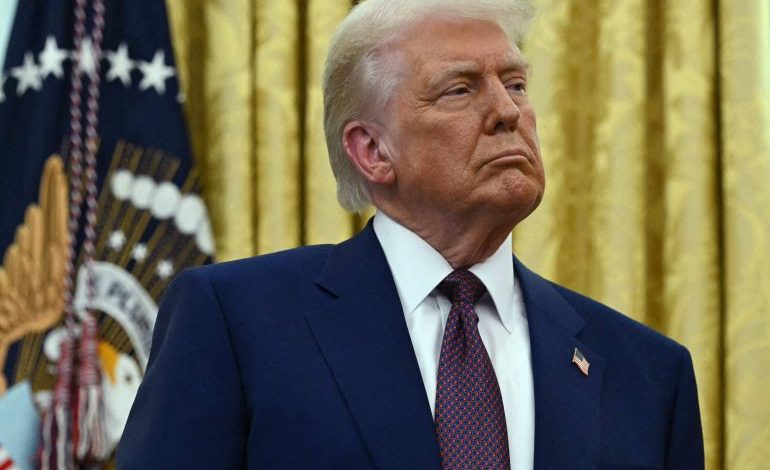Trump’s Economic Plan Could Cost Britain $20 Billion

Sudan Events – Agencies
According to Bloomberg, U.S. President Donald Trump’s latest plan to impose tariffs on U.S. imports—based on sales taxes in the exporting country—could cost the British economy nearly £16 billion ($20 billion) over the next two years. This poses a challenge for UK Prime Minister Keir Starmer, who has pledged to boost economic growth.
Last Thursday, Trump instructed top economic officials to calculate import tariffs for each country based on various factors, including customs duties, taxes, and currency policies, as well as the barriers U.S. companies face when exporting.
Trump specifically pointed to value-added tax (VAT) on sales in the European Union, noting that the UK also imposes a 20% VAT on imports.
While UK economists believe such a broad tariff policy is unlikely to be effective due to its potential impact on the U.S. economy, it nonetheless raises the risk of a major economic blow to the UK. This comes as Treasury Secretary Rachel Reeves faces pressure to stimulate growth and generate the tax revenues needed by the Labour government, which has been in power for seven months, to improve struggling public services.
If the U.S. imposes a 20% tariff on imports from the UK, it could reduce Britain’s economic growth to 1% annually over the next two years, down from the previous estimate of 1.25%, according to Bloomberg Economics’ worst-case scenario.
The impact could be even greater: if the U.S. applies tariffs based on both the UK’s VAT and customs duties, British exporters could face a 21% tariff when selling to the U.S. According to Deutsche Bank analysts, this would put the UK behind trade partners such as EU members (22%), Argentina (29%), and India (33%).
Paul Dales, chief UK economist at Capital Economics, commented that Britain is “doing its best to stay out of the line of fire and appease Trump.” He was less pessimistic about the potential impact of U.S. tariffs, estimating that a 20% tariff would reduce the UK’s GDP by slightly more than 0.2%.



